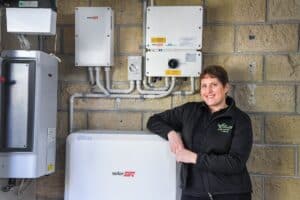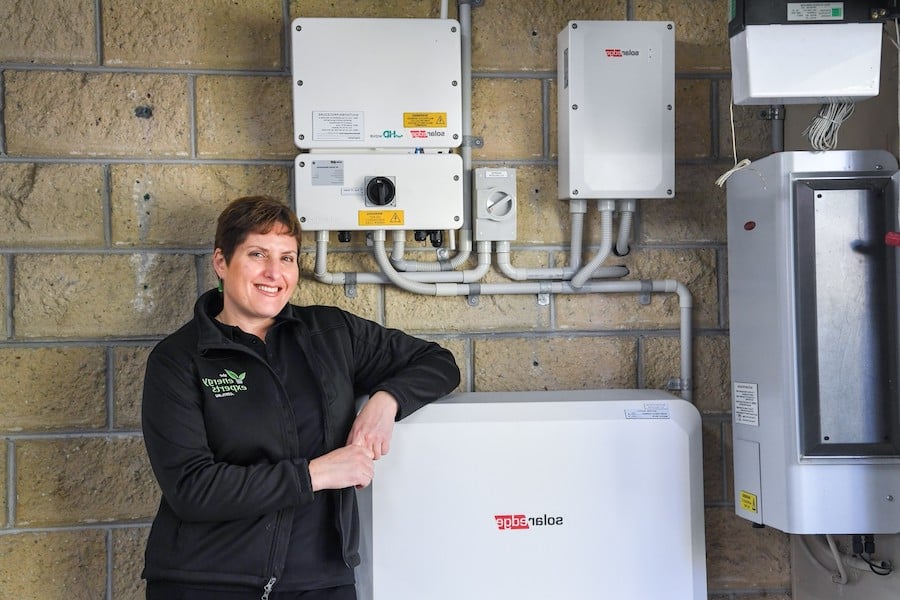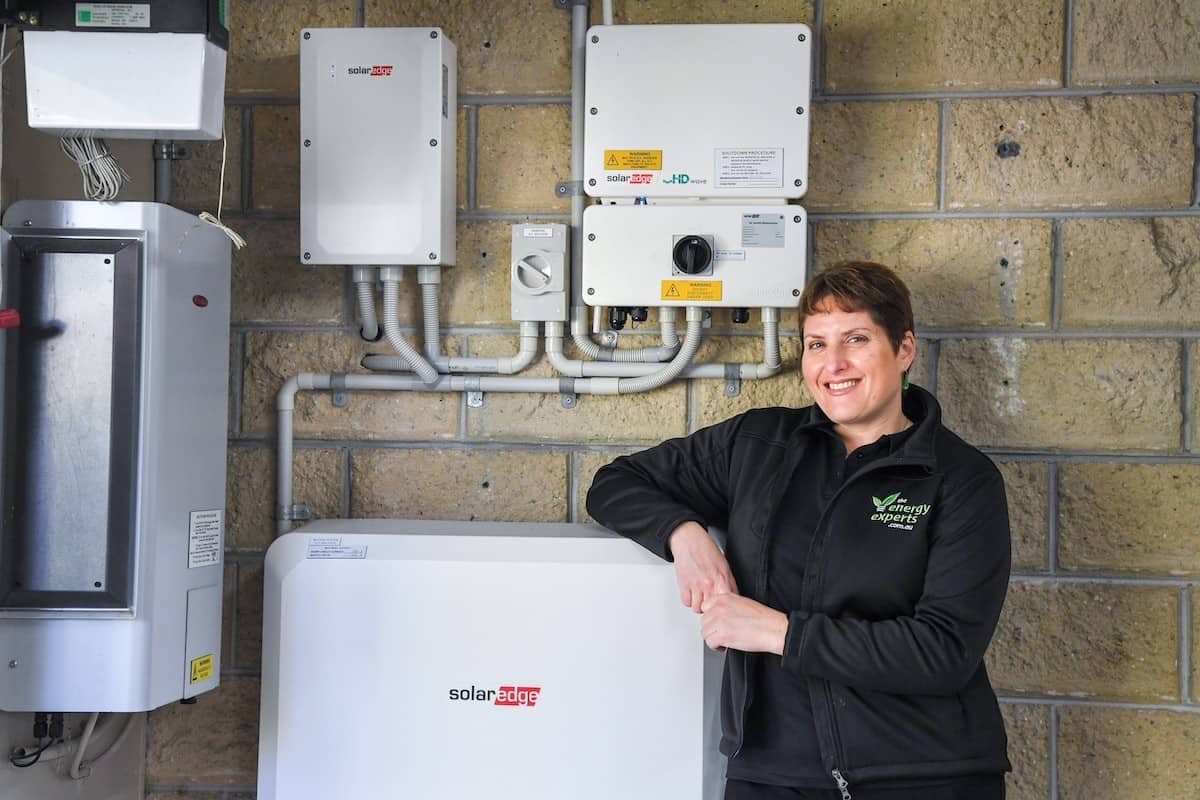- The type of heating system you use
- The size of your solar power system
- How much of your free solar energy you use to heat your home during the day when the sun is shining versus late afternoon, evening, or night time when it’s not.
- Whether you have battery storage and the size battery you have
If you’ve installed a solar system, you may question whether to keep your current heating system or find an alternative. Let’s look at the options.
Electric heaters
Electric heaters are the least energy-efficient heating method and will devour most of your solar energy if left running throughout the day. At night, you can either rely on energy stored in a battery (if you have battery storage) or revert to the grid to continue powering these energy-hungry heaters.
Gas heaters
Gas heaters are popular with many Australians as they’re fairly economical. Unflued (portable) gas heaters use no electricity, while flued gas heaters that use an electric fan to draw waste gases out of the home use a nominal amount of electricity.
However, gas is getting more expensive in Australia and heating your home with gas means that your solar doesn’t directly offset your heating costs. That said, some clients liaise with their energy providers to have their solar credits (Solar Feed-In Tariff) go towards their quarterly gas bill if they’re with the same provider for both electricity and gas.
Wood-burning heaters
There’s no denying the beautiful ambience of a wood-burning fire. But they’re messy, labour-intensive and polluting as they produce smoke, methane and black carbon particles. What’s more, a wood fire isn’t the most efficient way to heat your home – particularly as your solar system won’t be offsetting any of your heating costs.
Air conditioners
Air conditioners have traditionally received a bad rap for being energy suckers. But modern air conditioners with inverter technology are actually really energy efficient.
Reverse-cycle air conditioners work on a heat exchange transfer. In winter, they pull heat from the outside air and transfer it indoors. In summer, the cycle is reversed.
Reverse cycle air conditioners with inverter technology do require some electricity to operate but not to generate heat. As such, they’re much more energy-efficient than old-style air conditioners.
You can connect a reverse cycle air-conditioner to a solar power system via a timer. Better still, you can install a smart switch/relay that lets you run your air-conditioner when there’s available solar energy that would otherwise get exported to the grid. If a cloud blocks the sun from reaching your panels and your solar production subsequently drops, then the smart relay knows to stop sending solar energy to the air-conditioner and the air-con ramps down until the sun reappears. You can always override this to continue to run your air-conditioner whenever you like.
Geothermal heating
Geothermal heating and cooling systems use the stable temperature of the ground to help warm or cool your home. In winter, the pump pulls heat from the earth, while, in summer, the cycle is reversed. They are efficient, using around 25% to 50% less electricity than conventional heating or cooling systems.
So pairing geothermal technology with your solar power system can be a very economical way of heating your home. That said, a geothermal heat pump can be expensive to install, depending on the amount of digging and drilling required.
A little insulation can go a long way
There are many ways to keep your home warm in winter without cranking the heating up to full. At the Energy Experts, we always recommend:
- insulating your home as best as possible to stop heat leaking out
- installing draught stoppers, curtains or thermal backed blinds to keep warmth in a room
- closing off rooms wherever possible to keep the space warm; and
- running your air-conditioner at around 22 degrees year round.
Call The Energy Experts on 1300 516 474 or email save@theenergyexperts.com.au for an obligation-free solar quote that factors in your home’s unique heating needs.















